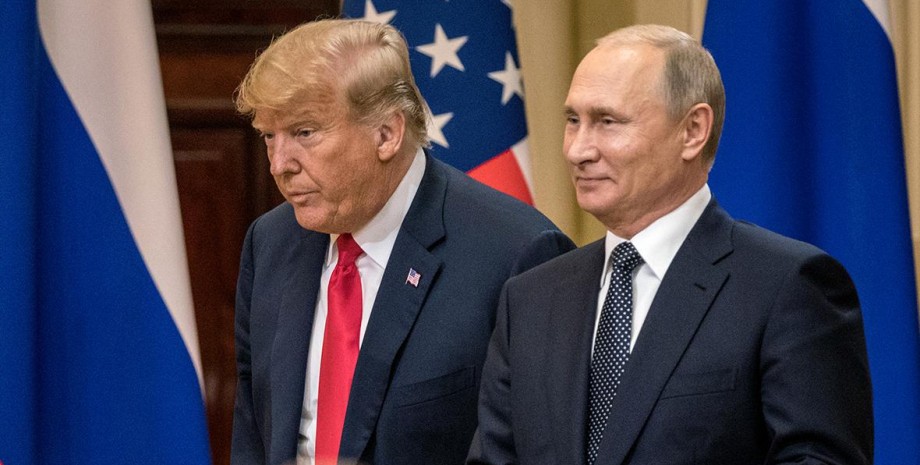
This Russian presidential tactic is contrary to the high -speed efforts of US President Donald Trump, whom he is working to end the war in Ukraine. Journalists say that last week, Putin tried to hold back expectations for the quick completion of the negotiations: "It will take some time. How much time it will take, I'm not ready to answer right now.
" For Russia, negotiations with the United States themselves are a victory because they help to put an end to the isolation imposed by Moscow by Joe Baiden's administration, which refused to interact with the Kremlin after the invasion of Ukraine in 2022. The Kremlin stated that he was not interested in a simple cease to stop fire because he was convinced that Ukrainians could use a pause in fighting for re -equipment.
Instead, Putin wants to understand what he calls the "fundamental reasons" of conflict, which, he said, encompass Ukraine's desire to join NATO and the anti -Russian government in Kiev. It is noted that the Armed Forces of the Russian Federation is coming in Ukraine, and Moscow has a long history of use of military advantage to improve their position in negotiations. It is a strategy that Moscow used in Syria and during Yalta negotiations during World War II.
Putin has goals that go far beyond the territorial heritage reached by his troops in Ukraine. The Russian president wants to limit the size and power of the Armed Forces of Kiev, to ensure a constant neutrality of Ukraine and to control the direction of its political future. Although Donald Trump stated that he considers "inappropriate" accession to NATO, the Constitution is enshrined in a long -term goal.
To achieve its goals, Russia can try to influence the course of negotiations using the position on the battlefield. Some of the greatest diplomatic victories of Moscow in the last century were reached at the negotiation table, while Russia created new military realities on the front line. The official tactic was used by the Kremlin before, for example, in Syria, when Russia participated in negotiations on the cessation of the Civil War, providing Bashar Assad weapons used against the rebels.
In the end, Moscow intervened on the side of Assad, winning the territory for Damascus and strengthening the power of Assad. Similarly, in the last year of World War II, Joseph Stalin became more rigid in negotiations with Prime Minister Winton Churchill and US President Franklin D. Roosevelt, when Soviet troops were increasingly displacing the Nazis from Poland.
The results had catastrophic consequences for Warsaw and other countries in Central and Eastern Europe, which were ruled for almost half a century. "Stalin was able to improve his position in negotiations against Churchill and Roosevelt, because his troops created new realities on the battlefield. You can see how Putin thinks in similar terms," said Sergey Radchenko, an expert in the Cold War.
It is noted that since the position of the Armed Forces of the Russian Federation on the battlefield improves, the Kremlin raises rates. "I can only imagine that officers at the General Staff are trying to convince Putin that now is the time to click on gas and seek maximum territorial acquisitions," - says Samuel Charapp, a senior political scientist of the American Analytical Center Rand.
"The Kremlin has significant doubts that Trump and his people understand the complexity or confusion of the issues that need to be resolved," said Thomas Graham, a former White House Advisor on Russia, George Bush Jr. As the negotiations develop in the US, there are means of pressure on Moscow, such as increasing restrictions on export of Russian oil or sending even more military assistance to Kiev.
Trump directly hinted at such events shortly after joining the post, placing on his platform Truth Social that Putin is better to "make an agreement". But lately, he made it clear that he prefers the path of negotiations. And since Trump tries to conclude a quick deal with the Kremlin, he will have two options for promotion: to put pressure on Moscow or Kiev.
The recent sharp critic of Trump against Vladimir Zelensky points out that he decided to put pressure on Kiev, a lighter purpose of two, Graham notes. Negotiations are also complicated by the fact that Putin does not want Trump's administration to think that in the White House they can quickly get rid of Russia as problems, move on and ignore relations with Moscow. According to Joe Baiden and Barack Obama, the United States tried to isolate Moscow on a global scale.
The restoration of dialogue is the Kremlin's victory. "They want to interact with the United States for some time. They do not want the United States or Trump to think that all this is a matter of two or three months, and now I just focus on China and forget about the Russians," Graham said.










All rights reserved IN-Ukraine.info - 2022